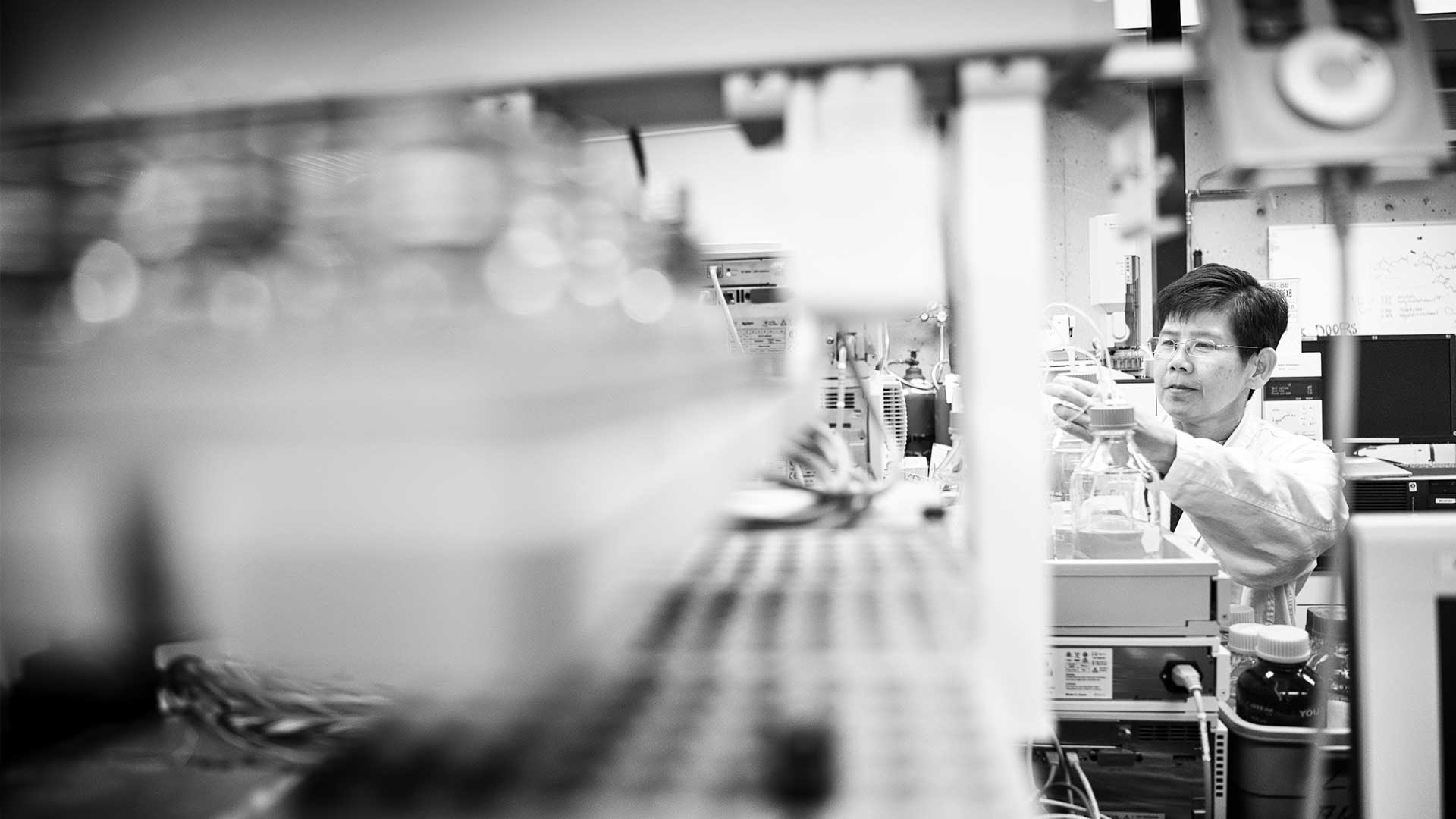
Mass Spectrometry Core Facility
The Mass Spectrometry Facility offers a comprehensive range of research services for the food and beverage industry including analyses of fragrance and aroma compounds, flavonoids and anthocyanins in fruits, as well as metabolite profiling of small molecules.
Located within the Food, Nutrition and Health Building on the Vancouver campus, the facility contains nine instruments equipped with a variety of different ionization techniques. Each is based on a different combination of mass analyzer design and ionization source and therefore has different analytical capabilities. Together, they form a suite of instruments that provides a comprehensive range of analytical organic mass spectral techniques. The facility focuses in small molecules analyses. Applications in agrochemical, food and beverages, pharmaceuticals and environmental.
The following instruments are currently available:
- (Two) Agilent 6890/5973 single quadrupole GC-MS
This instrument is used for mass spectral analysis of volatile organic mixtures and metabolomics analyses. It consists of PAL autosampler equipped capillary GC integrally connected with an EI ionization quadrupole mass analyzer (CI is available as an option). Come with split/splitless and cool on column inlets. Use for static headspace, SPME and liquid injection methods. - Agilent 6890/5975 single quadrupole GC-MS
This instrument is used for mass spectral analysis of volatile organic mixtures and metabolomics analyses. It consists of autosampler equipped capillary GC integrally connected with an EI ionization quadrupole mass analyzer (CI is available as an option). Comes with split/splitless inlet as well as an FID. - Agilent 7890/5975 single quadrupole GC-MS
This instrument is used for mass spectral analysis of volatile organic mixtures and metabolomics analyses. It consists of PAL autosampler equipped capillary GC integrally connected with an EI ionization quadrupole mass analyzer. Comes with split/splitless inlet. Use for static headspace, SPME and liquid injection methods. - Agilent 7890/7000 triple quadrupole GC-MS
The GC triple quad is applied to targeted trace-level analysis of metabolites and other small molecules. The electron ionization (EI) combines with MS/MS capability for outstanding selectivity. - Agilent 1100/LCMSD single quadrupole LC-MS
The mass spectrometer is used for a variety of studies including metabolite identification, stability testing, degradation products, and high-level quantitation, as well as general molecular weight determination, SIM analysis, and analytical scale LC-MS analyses. It is operated in-line with an Agilent 1100 analytical HPLC, a Diode Array and Refractive Index detectors, and the standard Electrospray source in positive and negative modes. - Agilent 1100/XCT Plus Ion Trap LC-MS
The mass spectrometer is used for a variety of studies including metabolite identification, stability testing, degradation products, and high-level quantitation, as well as general molecular weight determination, MSn analysis, and analytical scale LC-MS analyses. It is operated in-line with an Agilent 1100 analytical HPLC, a Diode Array detector, a fraction collector and the standard API source can be configured for either electrospray ionization (ESI) or atmospheric pressure chemical ionization (APCI) in positive and negative modes. - Agilent 6890 GC-FID
The instrument is used for teaching purposes and analysis of less complex mixtures. - Agilent 1200 UHPLC/6530B Accurate Mass Q-TOF LC-MS
This high-resolution accurate mass spectrometer is used for a variety of targeted and untargeted studies that include metabolite profiling and identification, stability testing, degradation products, quantitation, accurate mass determination, and accurate mass MSMS analyses to four decimal points. It is operated in-line with an Agilent 1200 analytical UHPLC system that comes with thermostated autosampler, thermostated column compartment and a Diode Array detector. The standard API MS source can be configured for either electrospray ionization (ESI) or atmospheric pressure chemical ionization (APCI) in positive and negative modes.
Further information
Please contact Harley Gordon directly at 604 827-2157 or by email at harley.gordon@ubc.ca.